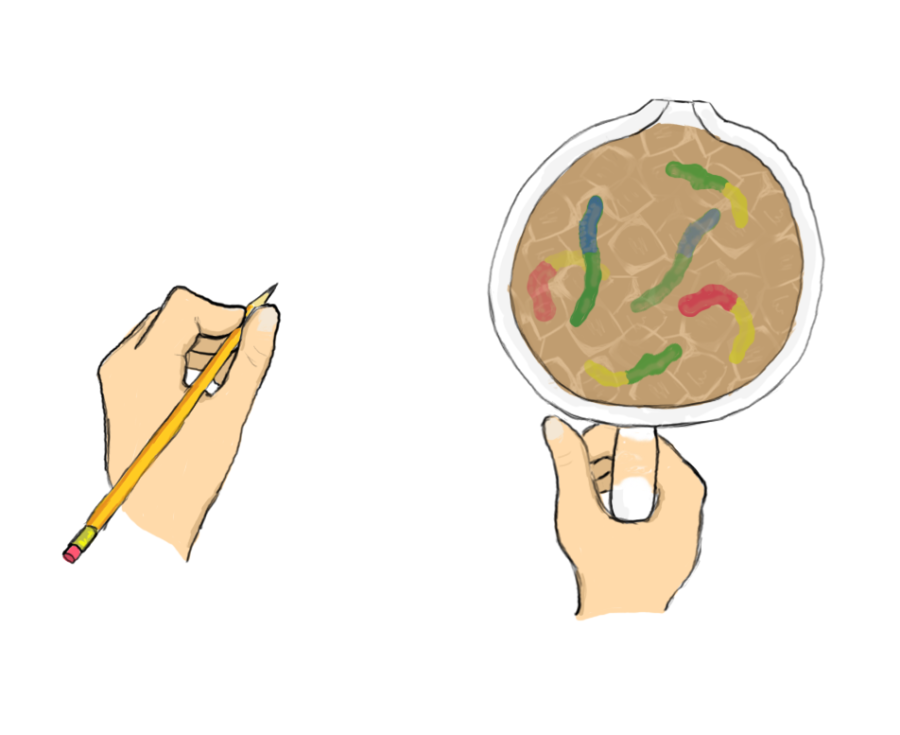A professor walks into a bar to talk about statistical issues in business.
This sounds like the opening line of bad joke — but it’s a reality for some Pitt professors. Though it is rather unconventional, some University staff members have been relocating class to more sociable areas on campus, such as local bars and restaurants.
For Pitt lecturer Mark Kramer, taking the class outside of the classroom has more to do with transplanting students in a more engaging environment.
Kramer teaches writing classes at Pitt, such as creative nonfiction courses and a first-year composition class, with a service learning section incorporated. For the latter, his class often discusses a particular neighborhood in-depth and the consequences of gentrification in that area. For this topic, he’s taken a class to Tana Ethiopia in East Liberty to see the effects firsthand in a more enriching learning experience.
“It gives them a kind of real-world application with sensory experience.You know, you’re tasting, you’re seeing, you’re touching,” Kramer said. “It is literally, you know, feeling these spaces. It does enhance that learning in that sense.”
Closer to campus, Kramer has held classes in the quieter corners of Oakland staples — such as the basement room at Fuel and Fuddle and the second level of The Original Hot Dog Shop.
“Some spaces are more conductive than others,” Kramer said. “So I’m pretty selective in terms of choosing when and where.”
Though he has attempted to hold class at Hemingway’s Cafe, he said the loud, fun atmosphere of the Forbes Avenue bar makes carrying out a successful class difficult. Kramer has found he prefers the aforementioned venues of Fuel and Fuddle and The O.
Meg Millure, a senior double major in writing and gender, sexuality and women’s studies, took Kramer’s Senior Seminar in Nonfiction class last semester. The class met at the Thirsty Scholar one Monday evening to hold a writing workshop for the Capstone essay.
“We were all kind of driving ourselves crazy with our projects and it kind of just made sense
for us to have a little bit of a break, ironically when we were in class,” Millure said.
Millure felt that being able to socialize with peers outside of the classroom added more personability to the essay she was working on. She also valued the casual and informal approach to discussing a group collaboration.
“We sat with our workshop groups and had a glass of wine,” Millure said. “It was really nice just to be able to kind of have the OK to relax, especially on a project that I cared so much about.”
Kramer said the classroom can be a bit of an artificial space for learning. Even when his classes are not frequenting local eateries, he tends to relocate them to places like Hillman Library for a change of scenery.
“Obviously I want them to be better writers because I teach writing classes, but I’m looking for personal growth, individual transformation,” Kramer said. “And I just find being outside of the classroom in environments that shake things up a little bit helps that.”
For Pitt lecturer Jeffrey Wheeler, teaching outside the classroom is not just an added experience, but actually imperate to the curriculum. Wheeler teaches Calculus I and II in the regular classroom setting, but requires his Business, Industry and Government Problems class to occasionally meet in a more casual bar or restaurant setting.
In the BIG Problems course, students work with local Pittsburgh area companies to solve applicable math problems. When advisers from these corporations visit and meet with the class, Wheeler finds it more effective to convene over a meal rather than in front of a blackboard.
“The only reason I’ve ended up in a restaurant is just for that interpersonal downtime when people get to connect — get to know each other between the students and a client,” Wheeler said.
Wheeler prefers relocating class to the back of Hemingway’s in the early afternoon — a time he said is usually pretty quiet — but he’s also taken class to Legume in North Oakland and Meat and Potatoes Downtown.
According to Wheeler, these meetings are as much of a networking opportunity as they are a learning experience for BIG Problems students — many of whom have been hired by the companies they collaborated with in the class.
“The advantage of spending time in a restaurant is that the students get to be a little more free, little relaxed,” Wheeler said. “It also builds a little trust.”
Wheeler suggests that the hardworking attitudes of Pitt students adds to the class’ success in an unorthodox environment.
“The students that take this class typically are motivated by gaining an experience that will help them look attractive to a potential employer,” Wheeler said. “My goal is to give you that experience.”


